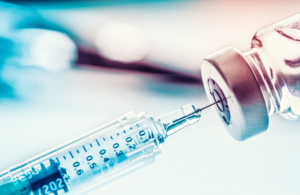Fosdenopterin approved to treat adult patients with molybdenum cofactor deficiency (MoCD) Type A
The Medicines and Healthcare products Regulatory Agency (MHRA) has today (9 April 2024) approved the medicine fosdenopterin (Nulibry) to treat the genetic disease Molybdenum Cofactor Deficiency (MoCD) Type A

MoCD is a rare genetic disorder in which the body is not able to produce cyclic pyranopterin monophosphate (cPMP). This causes a build‐up of a sulphite which is toxic and damages the brain. MoCD is usually diagnosed in babies once they are born and causes symptoms such as seizures, involuntary movements and difficulties in feeding.
Fosdenopterin (Nulibry) has been authorised by the MHRA for Great Britain. In coming to its decision, the MHRA has relied on a European Commission (EC) decision (EMEA/H/C/005378), in accordance with the advice from the Committee for Medicinal Products for Human Use (CHMP). This is known as the EC Decision Reliance Procedure.
Julian Beach, MHRA Interim Executive Director, Healthcare Quality and Access, said:
Keeping patients safe and enabling their access to high quality, safe and effective medical products are key priorities for us.
We’re assured that the appropriate regulatory standards for the approval of this medicine have been met.
As with all products, we will keep its safety under close review.
The pharmaceutical form of this medicine is a 9.5 mg powder for solution for injection and the route of administration is intravenous. Fosdenopterin will be given into a vein through a catheter.
MoCD type A results from an error in the gene called MOCS1. This stops the body from producing cPMP. When this substance is missing, certain compounds (sulphites) formed in the body cannot be broken down. These compounds are toxic to the brain and can negatively affect or delay the development of a child. Fosdenopterin provides the missing substance that the patient’s body needs to break down the harmful sulphite compounds.
The benefits of fosdenopterin were seen in five main studies involving a total of 52 patients with MoCD type A. The studies looked at the effect of fosdenopterin on survival after one year of treatment. The results in the 15 patients treated with fosdenopterin were compared with historical data from two studies involving 37 patients who did not receive fosdenopterin or any other treatment.
After one year, around 93% of patients using fosdenopterin were alive compared with around 75% of those who received no treatment. The studies also indicated that early treatment with fosdenopterin, before patients develop major brain damage, preserves the ability to take food by mouth and improves growth and development of motor and cognitive functions.
The most common side effects of the medicine (which may affect more than 1 in 10 people) are related to the injection device (catheter). Those side effects are pain, discharge, redness and inflammation.
As with any medicine, the MHRA will keep the safety and effectiveness of fosdenopterin under close review. Anyone who suspects they or someone they are caring for is having a side effect from this medicine is encouraged to talk to their doctor, pharmacist or nurse and report it directly to the Yellow Card scheme, either through the website (https://yellowcard.mhra.gov.uk/) or by searching the Google Play or Apple App stores for MHRA Yellow Card.
Notes to editors
- The new marketing authorisation was granted on 9 April 2024 to TMC Pharma LTD
- More information can be found in the Summary of Product Characteristics and Patient Information leaflets which will be published on the MHRA Products website within 7 days of approval.
- For more information about the study, see the Summary of Product Characteristics.
- The Medicines and Healthcare products Regulatory Agency (MHRA) is responsible for regulating all medicines and medical devices in the UK by ensuring they work and are acceptably safe. All our work is underpinned by robust and fact-based judgements to ensure that the benefits justify any risks.
- The MHRA is an executive agency of the Department of Health and Social Care.
- For media enquiries, please contact the [email protected], or call on 020 3080 7651.